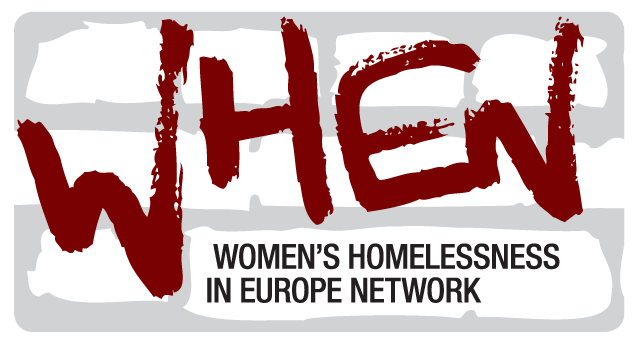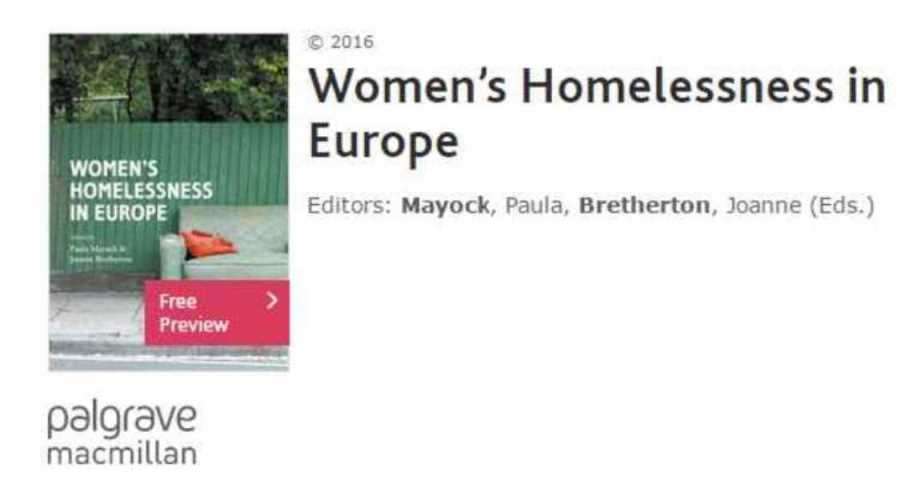Women’s Homelessness in Europe
Posted on 24 March 2017

As was highlighted in the recent Dispatches documentary on Channel 4, women who become homeless can experience great harm to their health and well-being and face multiple obstacles to services. Joanne Bretherton, at York's Centre for Housing Policy, co-directs the Women's Homelessness in Europe Network (WHEN) in collaboration with Trinity College, Dublin. The Network has just produced a major new analysis, Women's Homelessness in Europe. An examination of the state of academic understanding of women's experience of homelessness, the book highlights what has hitherto been a relatively neglected and profoundly serious social problem both in the UK and in Europe. Women, throughout Europe, are far more likely to become homeless due to domestic and gender based violence than is the case for men. There is also growing evidence that women and men tend to take quite different pathways through homelessness, with women's homelessness being less easily observed, which is likely to have led to an underestimation of both the scale and consequences of this serious social problem. This book marks a critical contribution in assessing and extending the evidence base on the causes and consequences of women’s homelessness. Drawing together work from Europe’s leading homelessness scholars, it presents a multidisciplinary and comparative analysis of this acute social problem, including its relationship with domestic violence, lone parenthood, motherhood, health and well-being and women’s experience of sustained and recurrent homelessness. Working from diverse perspectives, the authors look at the responses to women’s homelessness in differing cultures and regions, and within various forms of welfare states. They focus in particular on relating the gender dimensions of welfare and social policy to women’s experiences when they become homeless. This is the first step towards building a socially scientific robust evidence base on the role of gender as it relates to the experience of homelessness.
Find out more about the book at Palgrave Macmillan.

Notes to editors:
To find out more about the Women's Homelessness in Europe Network (WHEN) visit their website.
